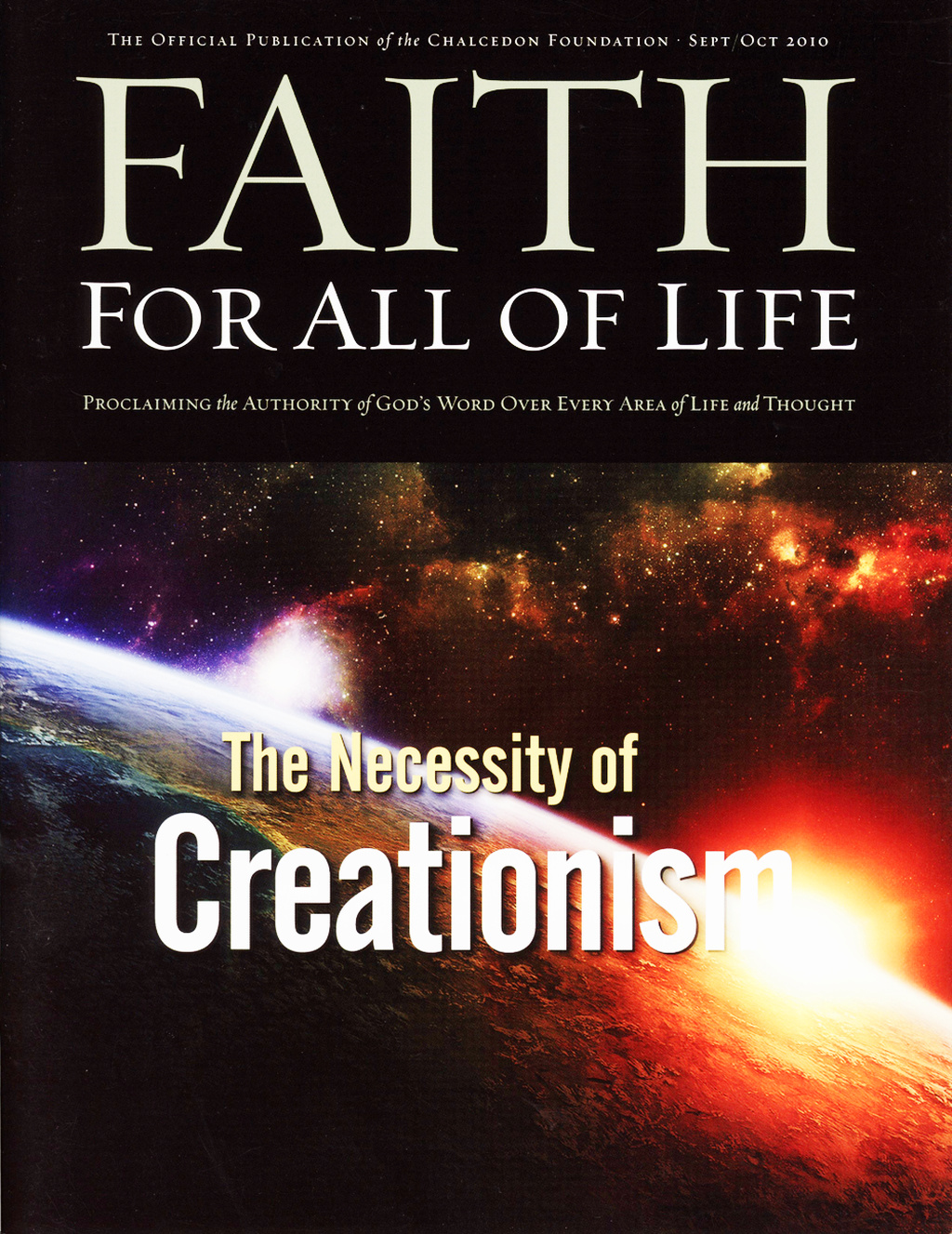
Magazine Issue
September/October 2010 Articles:
The Necessity of Creationism

- R. J. Rushdoony

A Christian Civil Order: Religion, Republicanism, and the American Founding
- Roger Schultz
Milton’s View of Education: A Mirror of Reformed Educational Philosophy
- Jeremy Larson
The Promise of Jonadab by E. Ray Moore and Gail Pinckney Moore

- Lee Duigon
The New Missionary
How to Write a Fantasy Novel

- Lee Duigon